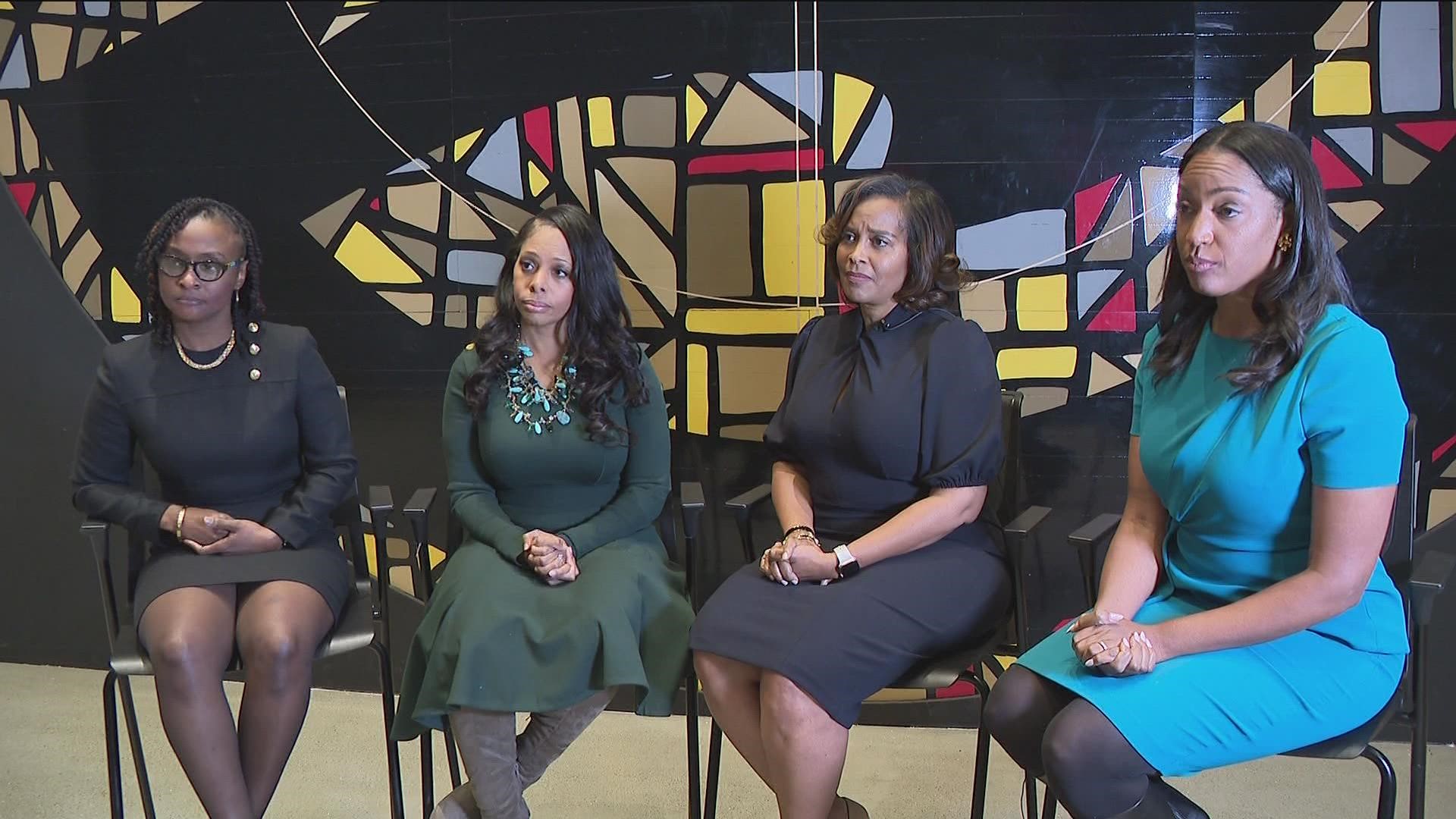ATLANTA — In Atlanta, Black history is taking shape as trailblazers are working to make the city a more equitable and inclusive place.
Four Black women in Atlanta currently hold the first roles as chief equity officer in the mayor’s office, Atlanta Public Schools, Atlanta Beltline and Invest Atlanta.
"It’s dynamic. I don’t know of any city in the country really that has what we have going on. This quad,” said Dr. Tauheedah Baker-Jones, chief equity and social justice officer for Atlanta Public Schools.
The sister circle formed after Qaadirah Abdur-Rahim was the first to officially put the chief equity officer role on the books with the City of Atlanta. She realized she wasn’t alone. Women who looked just like her were also fighting for equity and to activate the voices of the unheard. So she sent an email inviting the ladies to take on the challenge together -- and they all agreed.
“This is certainly a moment," Abdur-Rahim said. "I talked about the social storm that’s been created. I think that we can create an equity storm to trump that storm and really pave a blueprint for a new civil rights agenda for this city and for this world."
Nonet Sykes, the chief equity and inclusion officer for Atlanta Beltline, Inc. said the email was a symbol of the supportive community of women who had similar goals.
“And to receive Qaadirah’s email it just made me say 'OK we’re all in this together and somebody wants to tell this important story for the next generation.' I think it’s hugely important,” Sykes said.
Following the explosion of the social justice movement surrounding the murders of George Floyd, Breonna Taylor and Ahmaud Arbery, the push to fill diversity, equity and inclusion roles skyrocketed in 2020. According to the professional networking site, LinkedIn, diversity roles are up 71 percent over the last five years.
“I often worry that our roles will be reduced once the moment is gone. And what I want to say today is it cannot,” Abdur-Rahim said.
Diversity, equity and inclusion roles aren’t widely cheered on, the women said. In some metro Atlanta schools, the role has been the source of pushback, especially from parents. Baker-Jones' role also includes the title of social justice officer with APS. Data shows within the school system it would take 128 years to close the gap between Black and white students, which is why she says even though uncomfortable at times, this work must start with our younger generation.
“Helping folks recognize that this work isn’t about baiting, shaming or guilting; it’s about realizing that there are barriers in place that are stopping large populations of our community from having access to opportunity. We did not create these barriers. We did not create these systems, we inherited them,” Baker-Jones said.
Getting that message across has been one of the greatest challenges for this group of women, they said. It has inspired them to not only support one another professionally but spiritually and mentally as well.
“To have a group of sisters to say 'No stick in there. I want to encourage you to stay inspired and motivated the work that you’re doing is having movement',” said Bonika Wilson, chief equity and inclusion officer for Invest Atlanta.
As society works to better understand the need for diversity and inclusion roles and how they benefit our society as a whole, these four women with one vision say it’s really simple and all comes down to one thing.
“The only thing that I encourage you to do is make decisions based on people’s humanity and dignity and if we can start there that will take us a long way,” Abdur-Rahim said.

